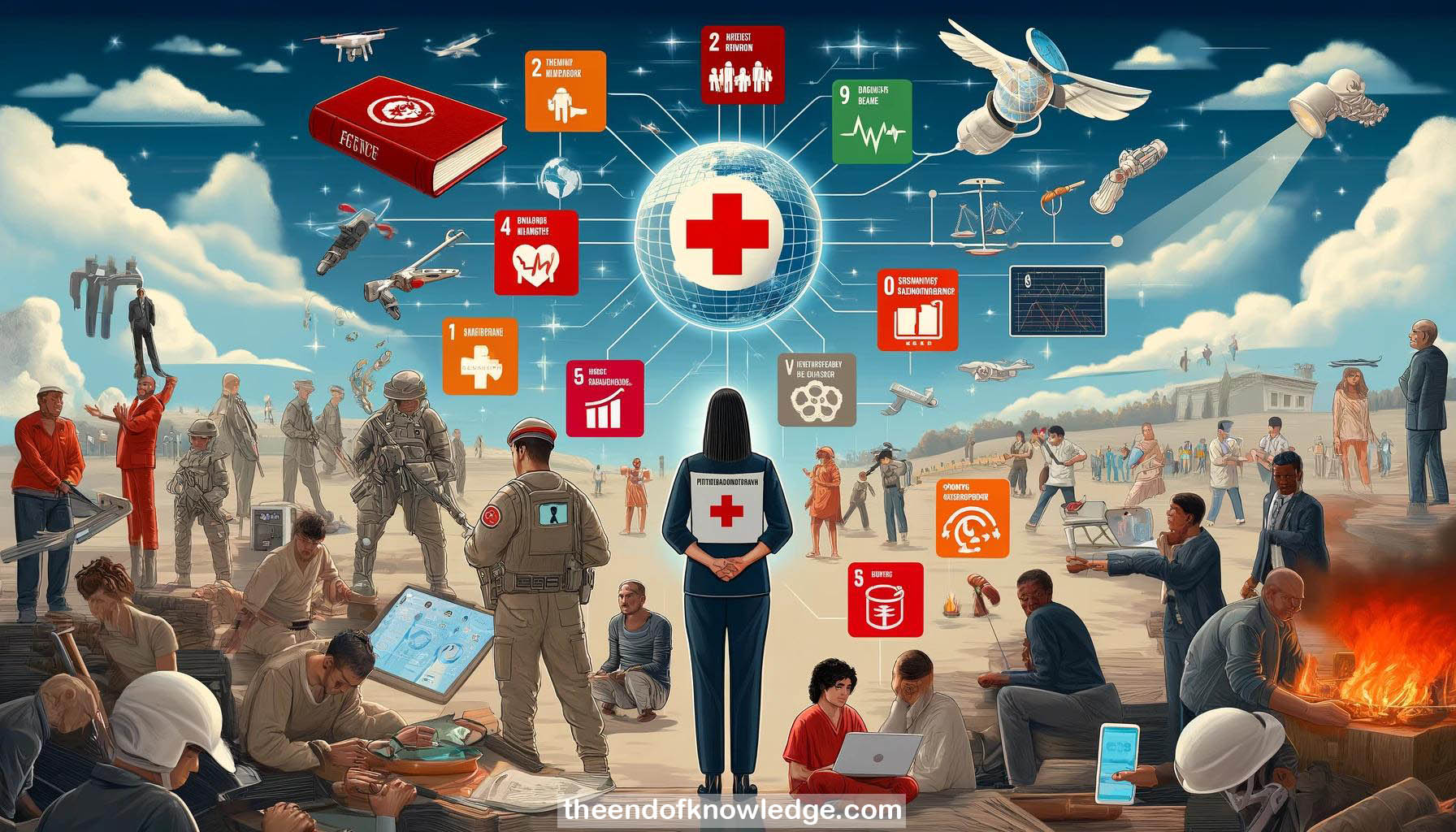 >
>
Concept Graph & Resume using Claude 3 Opus | Chat GPT4o | Llama 3:
Resume:
1.- The speaker works for the International Committee of the Red Cross (ICRC), focusing on people affected by war, violence, and disasters worldwide.
2.- The ICRC has a mandate to develop international humanitarian law, which regulates war. AI and data have already changed this landscape.
3.- There is great potential for AI to contribute to the Sustainable Development Goals, but it's important to consider the risks and questions.
4.- The ICRC visits 700,000-800,000 prisoners worldwide as part of its mandate. When visiting, they conduct private interviews to collect personal data.
5.- There is a social contract that the ICRC will treat the prisoners' data with integrity and not share it without agreement.
6.- Guaranteeing data privacy and control is more difficult today than 100 years ago, despite the ICRC's long history of data collection.
7.- Organizations must rethink how to protect people's data and be aware of data rights and standards, especially in humanitarian environments.
8.- In recent years, people worldwide, even in complex environments, are increasingly connected via mobile phones and aware of data importance.
9.- In violent environments, the ability to manage one's own data can be a matter of life and death. People scrutinize data management.
10.- The ICRC is increasingly challenged on data management. People want an organization as good as Google at managing private crisis data.
11.- The ICRC's reputation for generating trust will be critical in attracting people to provide data, especially in insecure situations.
12.- The ICRC has begun using big data and algorithms to improve its ability to quickly assess needs on the ground.
13.- Algorithmic analysis of data like tweets has helped identify issues like water, sanitation, and health problems to improve humanitarian response.
14.- However, the ICRC had to reflect on what algorithms to use and potential biases, working with academics to construct impartial algorithms.
15.- Integrating humanitarian principles into technology design was necessary even for relatively simple applications of data analysis for needs assessments.
16.- In considering AI, humanitarian organizations must also think about the weapons used in modern conflicts, which increasingly involve technology.
17.- Modern wars are often fought with special forces, proxies, mercenaries, cyber capabilities, drones, and increasingly, autonomous weapons.
18.- In the next 5-7 years, very small autonomous weapons may be able to enter a room and select targets without human control.
19.- These weapons could make decisions about combatants vs. non-combatants based on parameters like age and appearance. The example given was targeting old, bald men.
20.- Autonomous weapons with mass destruction impact will likely become relatively inexpensive and accessible to non-state actors, not just governments.
21.- The key question is how much human control and agency will remain at the core of these AI-enabled weapons systems.
22.- The ICRC believes that regardless of technological developments, human control and agency in weapons systems and targeting decisions is essential.
23.- Weapons, as machines, cannot be legally accountable - only human beings can and must be held accountable for decisions in war.
24.- Maintaining human accountability in war is already difficult but absolutely critical. Outsourcing kill decisions to AI is hugely concerning.
25.- The speaker wants to reflect with the audience on what dialogue is needed regarding AI development and governance.
26.- States are struggling to build consensus and regulate AI development, including in the context of autonomous weapons.
27.- Key questions include how to regulate AI, who is in charge of developing common understandings and rules.
28.- Some say significant regulation and examination of ethical questions is needed for AI in areas like healthcare that impact human beings.
29.- The speaker argues that for the sake of humanity and the Sustainable Development Goals, we must urgently consider AI's impact on people, starting with weapons.
30.- In summary, the potential of AI for good is immense, but mitigating risks, maintaining human agency, and building governance is essential.
Knowledge Vault built byDavid Vivancos 2024